
-
Customer Introduction
The Ministry of Foreign Affairs of the Republic of Korea is responsible for establishing and executing the country’s foreign policy, enhancing Korea's global standing, and protecting the safety and interests of its citizens abroad. The Ministry engages in a wide range of activities, including multilateral diplomacy, bilateral relations, and economic diplomacy, while striving to strengthen global partnerships. Recently, the Ministry has embraced digital transformation to improve the efficiency of its diplomatic work. By leveraging data analytics and AI technologies, the Ministry aims to develop more evidence-based policies and improve communication with citizens through digital platforms. Additionally, it is actively addressing international issues through cyber diplomacy and expanding global cooperation via online diplomatic events and meetings. This digital innovation is helping the Ministry respond proactively to the evolving international landscape, laying the foundation for future-oriented diplomacy and making Korea’s diplomatic efforts smarter and more effective.
-
Background
Recognizing the need for more efficient resource management and consistent oversight, the Ministry has identified the importance of transitioning to a cloud-based system to centralize the information resources of overseas missions. Previously, each mission operated its systems independently, resulting in data redundancy and inefficiencies. The Ministry determined that integrated management would enable faster, more accurate handling of diplomatic tasks.
However, the Ministry faced constraints due to limited physical resources available for cloud infrastructure development. Efficient resource allocation was therefore crucial. The Ministry was tasked with building a cloud-based integrated management system within a limited timeframe. To address these challenges, it explored solutions to create a global multi-region connected cloud infrastructure that would centralize the information resources of its overseas missions, ensuring both stability and accessibility. -
Objectives
- Cloud-Based Integrated Management System for Key Overseas Missions
- Integration with Related Systems within the Ministry of Foreign Affairs
- Cloud-Based Integrated Management System for Key Missions in the Americas
-
Solution & Expected Benefits
- Packaged hardware solutions provided for immediate use at overseas locations.
- Minimal physical resources required by combining Controller, Compute Node, and Storage Node.
- Adapted the IaaS platform already deployed at Gwangju's National Computing & Information Service (NCIS) to suit the needs of overseas missions.
- Packaged the solution to minimize maintenance requirements, considering local conditions.
- Expansion of the cloud-based integrated management system established in Phase 1 as part of Phase 2.
- Introduction of a container management platform for streamlined operations.
-
Results
Through a unified integrated management system, the Ministry of Foreign Affairs improved the inefficiencies caused by running separate systems at different overseas missions. By consolidating the dual portal structure between the headquarters and missions, and operating multiple data centers as one logical data center, the Ministry enhanced management efficiency and improved information accessibility.

